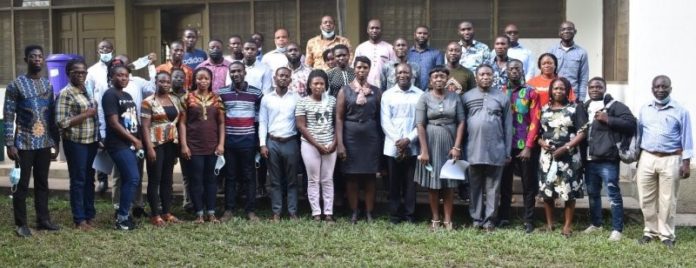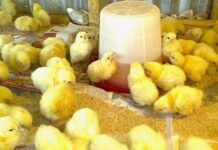Professor Paul Bosu, Deputy Director-General of Council for Scientific and Industrial Research Ghana (CSIR), has called for substantial investment in snail farming to position Ghana as the chief snail producer and supplier on the continent.
He said redirecting significant resources to develop and promote snail production would help Ghana penetrate the global market of snails, to derive the needed benefits, as snail farming required less capital than other forms of animal rearing.
Prof Bosu made the call in an interview with journalists at the close of a day’s training in snail farming technology at Bunso in this Eastern Region, under the auspicious of CSIR-Forestry Research Institute of Ghana.
He encouraged Ghanaians to venture into high-level, medium-to-large scale production of snails, because there is an already market, both locally and internationally, due to its delicacy and medicinal benefits.
“Snail meat is not only enjoyed locally, there is a global market for it as well, though there are European snails and other types, we also have our people in the diaspora who patronize the local breed snails, the Achatina,” he stated.
He asked the general public to consider snail farming in their backyard gardens where it could later be integrated, and others with small spaces in their homes could learn from it.
The training was aimed at equipping young people with the skills and knowledge of snail farming to help improve their livelihoods and boost snail production.
Prof Bosu noted that the time had come for much awareness to be created so that a lot of people could be trained to gain basic knowledge on how to rear snails.
He indicated that a combination of the awareness and the training would build the interest of people who would want to venture to see the need to invest in it.
“Sometimes when you tell people to attend training on snail farming they will ask, [with] snails too, do we farm them, I thought we collect them from the bush or forest,” he said.
He mentioned that for some time now, his outfit had realized that many people are missing out on the taste of snails especially the health benefits of being rich in protein, iron, calcium, and low in fats.
The decline in snail numbers, he said, had caused it to be expensive, and that the snail population is decreasing due to human activities such as bushfires, deforestation, and the use of pesticides.
He said the good way to increase snail production to supplement what is harvested from the natural systems is by training people to venture into its production.
“I encourage the youth, even if you have a job and you are not making enough income, you can add snail farming, explore opportunities by acquiring knowledge to supplement your work or venture full time and probably this may end up being what will lead you to your dream,” he said.
Mr Kennedy Datuah, a Veterinary Officer and a participant urged the youth to venture into snail farming because it requires less finance to start and indicated that, everything in the agriculture value chain had value in the market.
Millicent Amevor from the National Youth Authority office in Koforidua said before attending the training, she explained that snail farming requires no teaching, however after the training she has realized that if someone wants to venture into snail production that person needs to go through the tutorial process to understand its production.
She explained that she never knew snail farming was such a lucrative business and expressed the desire to venture into snail production.
The participants were trained on snail biology and types, getting started with snail farming, breeding and management calendar, diseases and pests’ management, marketing and business development, and finally visited the snail demonstration centre.
Snail production is considered a high profit-yielding farming venture when properly and professionally managed, and provides a cheap source of high-quality animal protein for human consumption.








